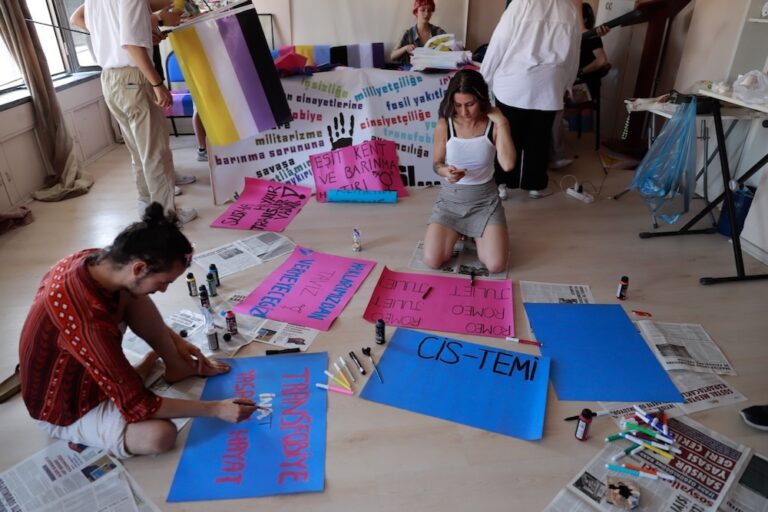(BIANET/IFEX) – A software company in Turkey recently blocked the BIANET website, http://www.bianet.com , acting not on a court order but instead from a list of “forbidden websites” allegedly based on a police list. The discovery was made following readers’ complaints of not being able to access the BIANET website. BIANET is concerned that a […]
(BIANET/IFEX) – A software company in Turkey recently blocked the BIANET website, http://www.bianet.com , acting not on a court order but instead from a list of “forbidden websites” allegedly based on a police list.
The discovery was made following readers’ complaints of not being able to access the BIANET website.
BIANET is concerned that a software application designed to protect children from online violence and pornography, as well as to control Internet use at work, has been used to stop readers from accessing news websites instead.
The software company, My Yazilim, which produces Internet filters, confirmed that BIANET was on the list but could not explain how it got there. A company staff member said the list was based on the police’s list of objectionable websites.
Upon BIANET’s complaint, the company announced on 27 June 2007 that BIANET has been taken off the list and its website unblocked. The assistant general manager, Yusuf Meral, said that they had identified BIANET as a news site.
The company had been reluctant to oblige at first, arguing that the block list was based on the police list. It said police regularly check on Internet cafés – their most important clients – and will punish those found to have accessed such sites; hence the company has no choice but to enforce the block list.
A police officer interviewed by BIANET said nearly every police unit prepares a list of “objectionable sites” and sends it to police stations in the provinces.
Yusuf Andic, the head of an Internet café association (TieV), told BIANET that district administration and police units have such lists, and that Internet café owners manually add the sites on the lists to the filter programme. Some even ask authorities for the list.
He added that, according to information from the Ministry of the Interior, Internet cafés are monitored twice a month. There are about 15,000 to 20,000 Internet cafés in Turkey.
Lawyer Fikret Ilkiz said that such lists of “forbidden sites” are illegal. The new Law No. 5651 on the preparation of Internet publications and crimes connected with these publications, which came into force on 23 May, defines Internet cafés as public use providers and holds them responsible for blocking access to sites with criminal content. However, regulations laying down how this is supposed to be done are not yet in effect, Ilkiz said.
“These regulations need to come out by 23 September. Until they do, nobody is entitled to apply a legal article according to their personal thoughts and opinions. If they do, this is illegal, because it is not clear yet which sites are going to be designated ‘harmful’ by whom and how,” said Ilkiz.
Although BIANET has been taken off the list, other political publications are still blocked. Among them are news sites http://www.atilim.org and http://www.alinteri.org , and the old web version of the “Özgür Gündem” daily, htpp://www.gundemimiz.com .


